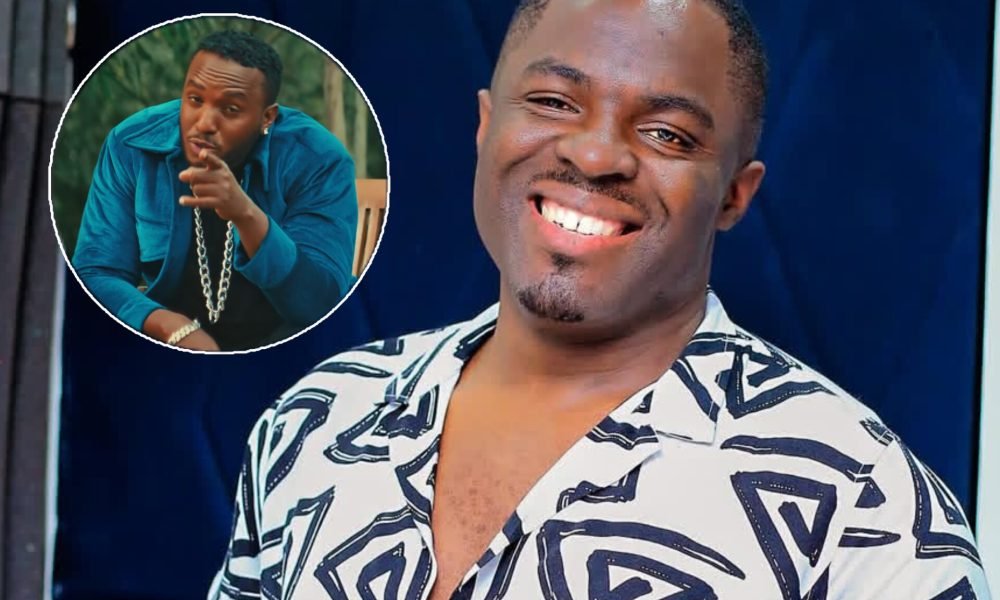There’s a saying: “God spends the day elsewhere but sleeps in Rwanda.” But where was He during that year? During that month?
It has been 31 years since the Genocide against the Tutsi, yet Rwanda is still rebuilding—not only its infrastructure but also the hearts and souls of its people, forever scarred by unforgettable wounds.
We remember, not just to mourn, but to honor the bravery of those who chose to rise and free Rwanda from darkness, ensuring that their sacrifices were never in vain. Many gave their lives. Many still live with invisible, incurable wounds. That is why we will never let what our ancestors fought for be in vain.
To the youth—and to those who didn’t witness those tragic days—we still have a long journey ahead. The fight is no longer with weapons, but with truth, unity, and memory. Though there are some who may try to erase our history, we, the people of Rwanda, know the truth, and we will not let it be forgotten. And we will never let division and hatred separate us again.
Here are 10 powerful films based on true stories from the Genocide. These movies can help you understand what happened, why we remember, and why we must never forget.
10. The 600
The 600 is a documentary film about 600 soldiers stationed at the CND building when Habyarimana’s plane was shot down. Before the 1994 Genocide against the Tutsi began, on April 6, 1994, 600 soldiers from the Third Battalion of the Rwandan Patriotic Army (RPA) were deployed to the Parliament building, formerly known as CND, as part of the implementation of the Arusha Accords. This documentary narrates their journey during the struggle to liberate the country and stop the genocide. Released on July 3, 2019, and directed by Laurent Basset, the film features Lathifa Bantegeye, Muniru Habiyakare, and Ntakirutimana Brahim.

9. Sometimes in April
Sometimes in April is one of the first films to provide a broad depiction of the 1994 Genocide against the Tutsi. Released in April 2005 and directed by Haitian filmmaker Raoul Peck, the film stars Idris Elba, who later became a globally renowned actor. The story follows a man named Augustin Muganza, portraying life before, during, and after the genocide, including the pursuit of justice for those responsible for the atrocities. The film also highlights the role of the international community, which failed to take action in preventing the mass killings of the Tutsi.
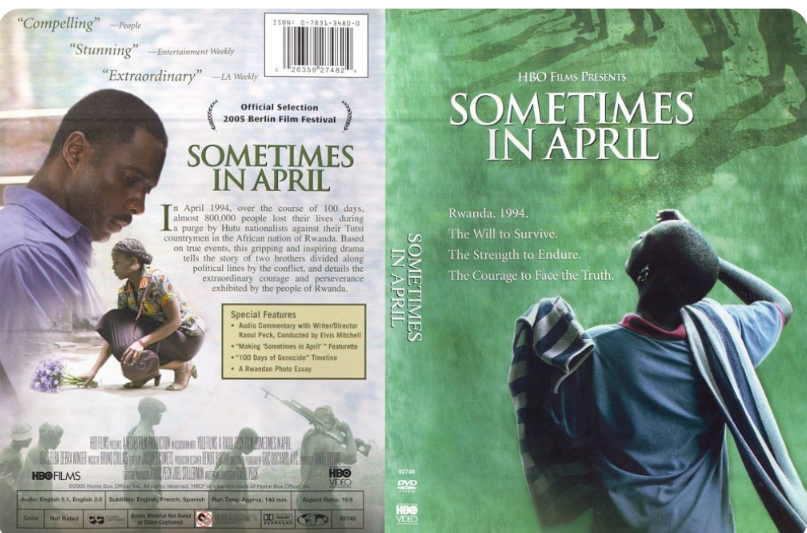
8. 94 Terror
94 Terror tells the story of a young girl named Keza, a survivor of the 1994 Genocide against the Tutsi. It depicts the challenges she faced during that time and how she lost her family, who were killed in the genocide. The film also follows her journey with her friends, Mutesi and Shema, as they attempt to escape to Uganda by crossing the Akagera River. 94 Terror won several awards, including the Best Viewers’ Choice Movie Award at the Uganda Film Festival Awards in 2018. It also received the Best Costume Award at the African Film Festival in Texas in 2019 and was nominated for an award at the Golden Movie Awards Africa held in Ghana. Directed by Mulindwa Richard, it stars Joan Agaba, Doreen Nabbanja, Muyimbwa Phiona, and others.
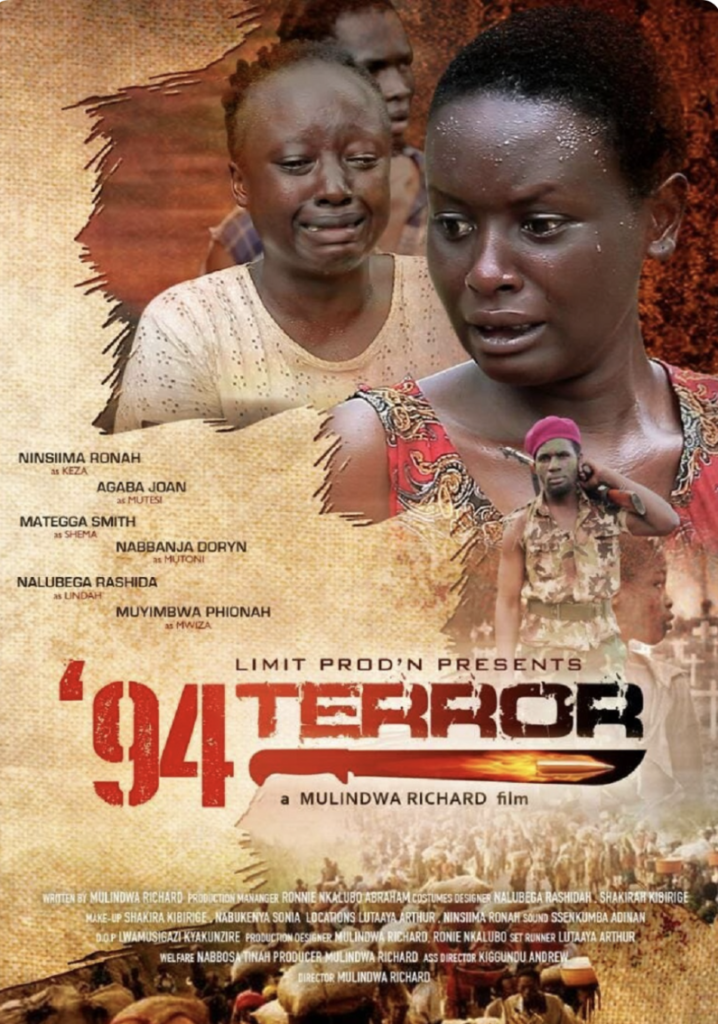
7. My Neighbor My Killer
This French-American documentary, released in 2009 and directed by Anne Aghion, focuses primarily on the Gacaca Courts, Rwanda’s community-based justice system. The film illustrates how the Gacaca Courts involved ordinary citizens, with trials led by community members known as Inyangamugayo (people of integrity). My Neighbor My Killer won several awards, including Best Documentary Film at the Montreal Black Film Festival. It was also nominated for the Gotham Best Documentary Award and has been screened at universities worldwide.
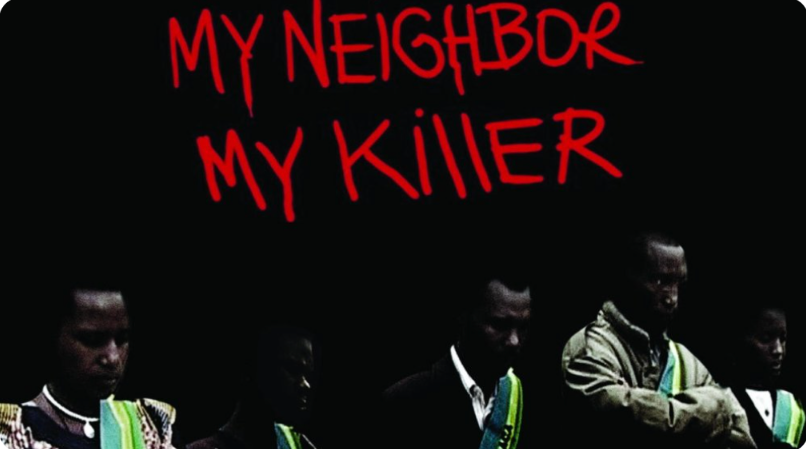
6. Keepers of Memory(2004)
Directed by Eric Kabera, Keepers of Memories focuses on how over one million people were killed in just three months during the 1994 Genocide against the Tutsi. The film also highlights the impact of the genocide on Rwandans and the importance of preserving history and testimonies of what happened. This serves as a way to educate and inform future generations about the tragedy.
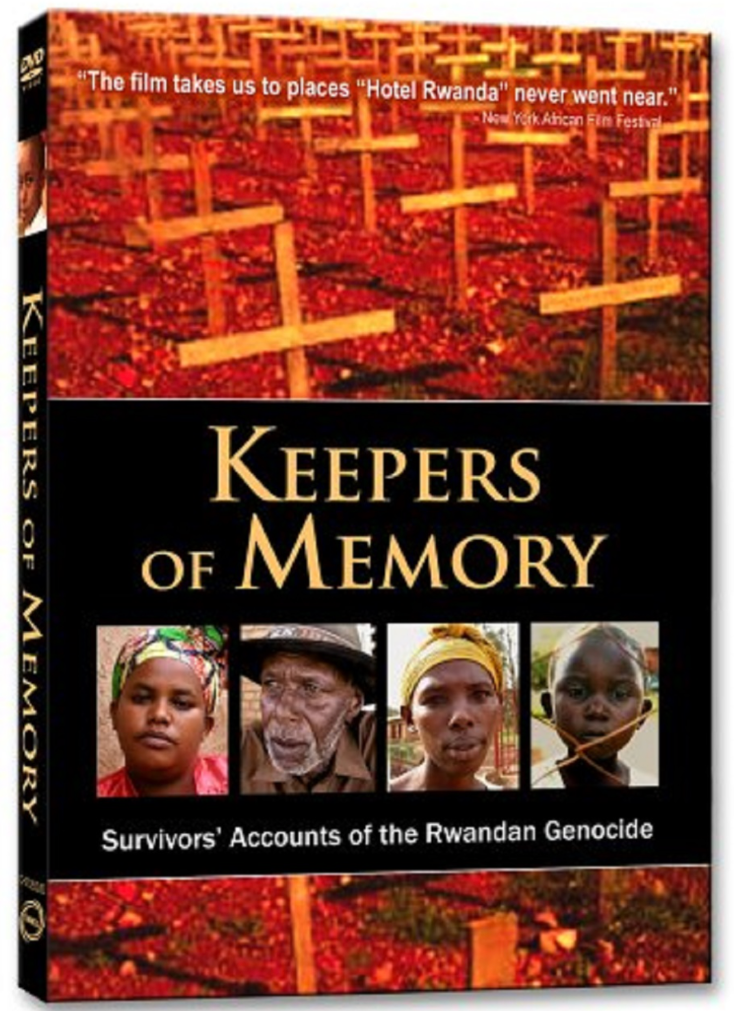
5. 100 Days
100 Days tells the story of two childhood neighbors who fell in love—one being Hutu and the other Tutsi—during the 1994 Genocide against the Tutsi. Directed and produced by Nick Hughes in collaboration with Eric Kabera, the film was filmed in Kibuye (now Karongi District) and was released in 2001. The cast includes Cleophas Kabasita, Mazimpaka Kennedy, Davis Kagenza, and others.
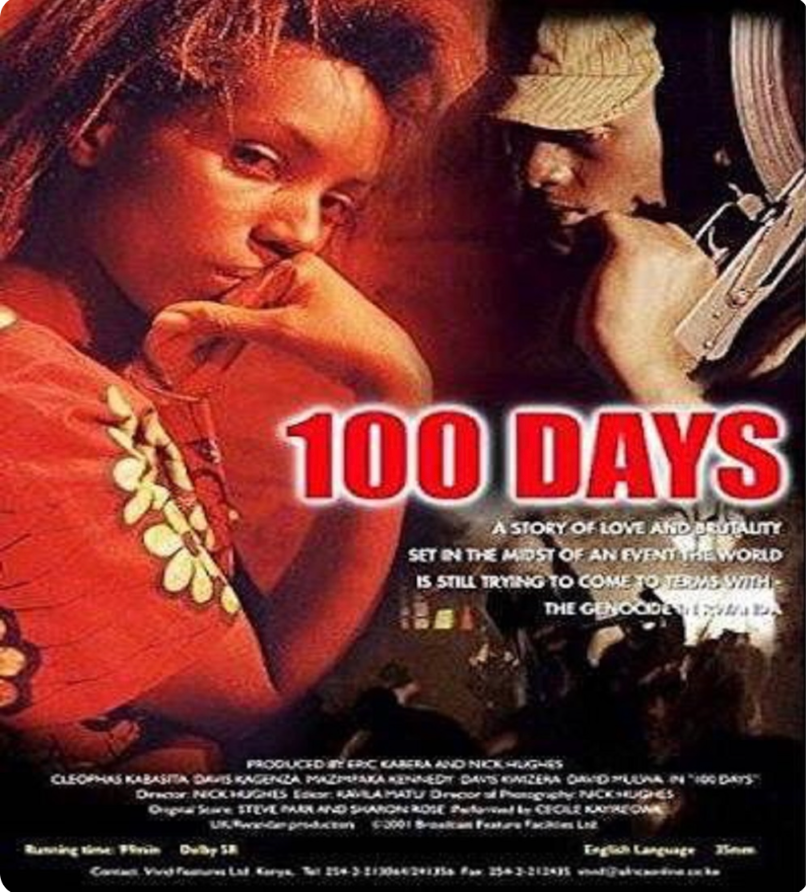
4. Shake Hands with the Devil
Based on the book Shake Hands with the Devil by Roméo Dallaire, this film was released in Canada in 2007. Dallaire, who was the commander of the United Nations Assistance Mission for Rwanda (UNAMIR), shares his experiences and struggles during the genocide. The film, which documents his time in Rwanda, reveals the devastating impact of international inaction.
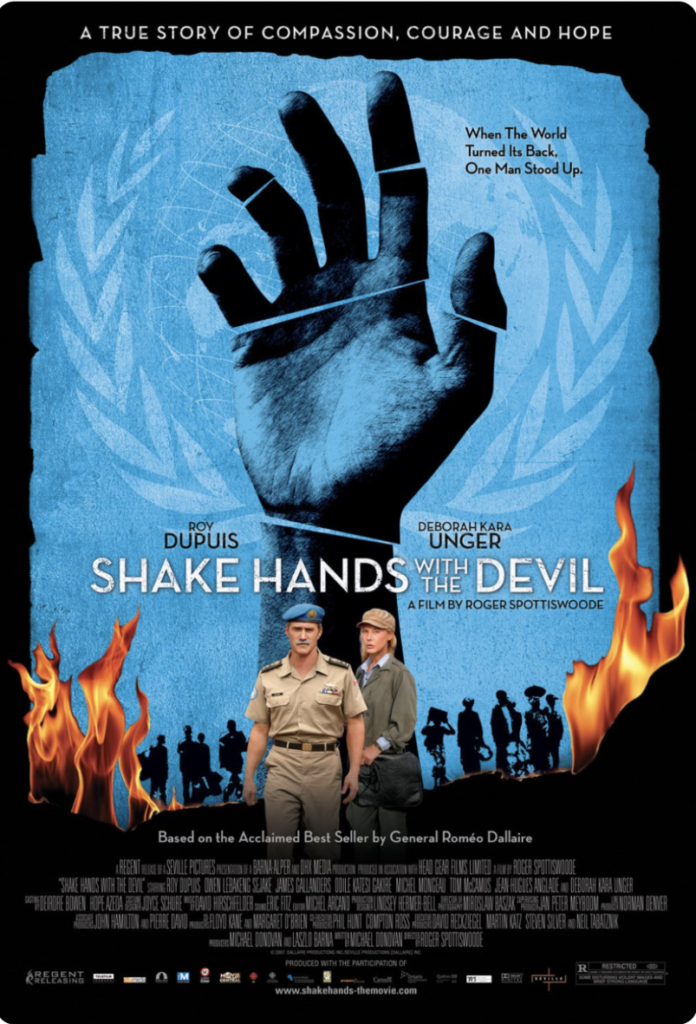
3. Shooting Dogs
Directed by Michael Caton-Jones in 2006, Shooting Dogs tells the story of two men—Christopher, a priest, and Joe Conner, a Belgian teacher—who helped people seeking refuge at the Ecole Technique Officielle (ETO) school in Kigali during the 1994 Genocide against the Tutsi. The title Shooting Dogs comes from the actions of UN peacekeeping soldiers (UNAMIR), who were ordered to shoot stray dogs that were eating the bodies of genocide victims, as they were not allowed to fire at the perpetrators carrying out the killings.

2. A Sunday in Kigali
Released in 2006 in Canada, A Sunday in Kigali tells the story of a secret love affair between a Canadian man and a Tutsi woman named Gentille. In April 1994, a Canadian journalist, Bernard Valcourt, was in Kigali working on a documentary about HIV/AIDS. When the genocide began, Bernard was unable to escape with Gentille. After the genocide ended, he returned to Rwanda to search for her.
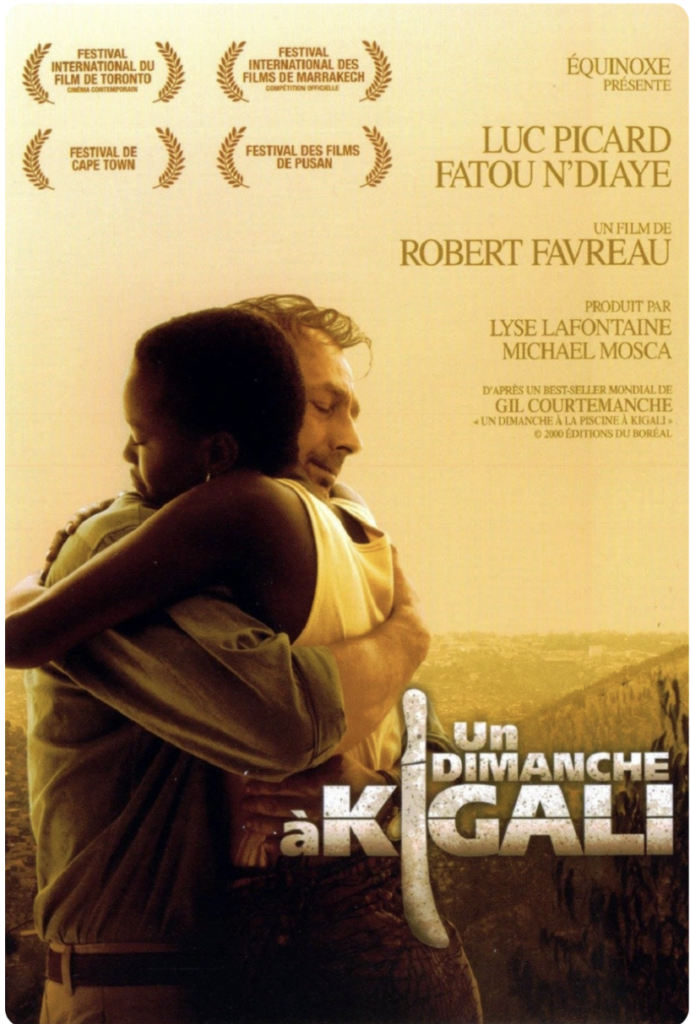
1. The Day God Walked Away
This film follows the story of Jacqueline, a Tutsi woman who worked for a Belgian family. When the family was evacuated, Jacqueline hid in the attic as killers looted the house. Later, she escaped and returned home, only to find that her two children had been killed. Devastated, she fled into the forest, where she met a wounded man named Karin and helped nurse him back to health. Released in 2009 and directed by Philippe Van Leeuw, the film stars Miss Shanel (Nirere Shanel) as Jacqueline, Afazali Dewaele as the wounded man, and Letitia Reva (Karin).
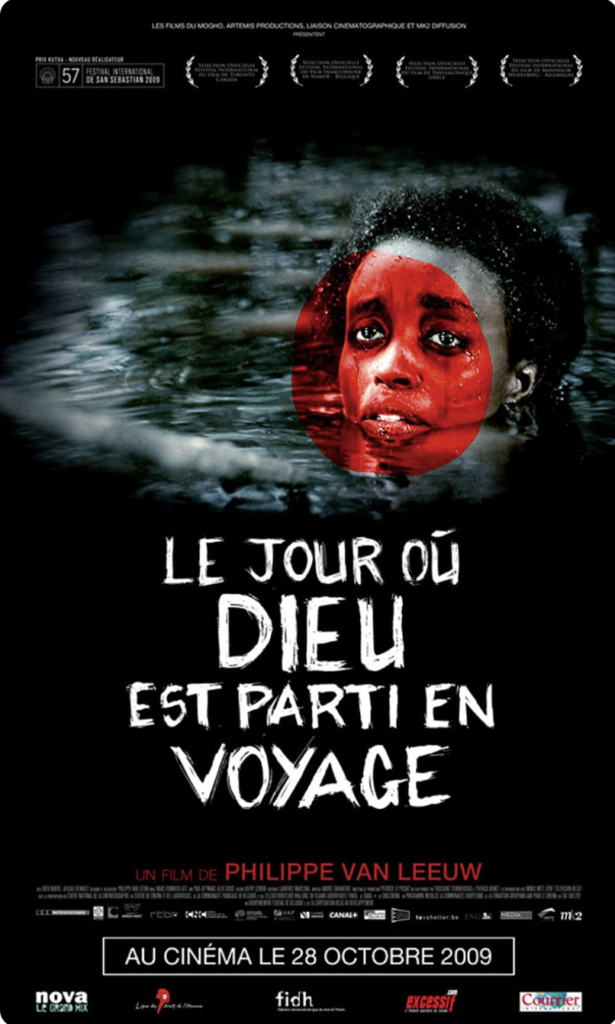
The Genocide left behind orphans, widows, and people with disabilities. But even in the shadow of that pain, we celebrate how far we’ve come. Thirty-one years of rebuilding and healing have not been in vain.
Today, there is no Hutu, no Tutsi—only Rwandans. We are united, and we love one another. Though the devil once divided us, we stand together now, stronger than ever. And we will never let the light of Rwanda dim again.
To the children, teenagers, mothers, and grandparents—let the truth be known. Speak about what happened in Rwanda. In doing so, you stand for justice, preserve history, and silence those who try to deny our truth.
We are Rwandans. Long live Rwanda.

